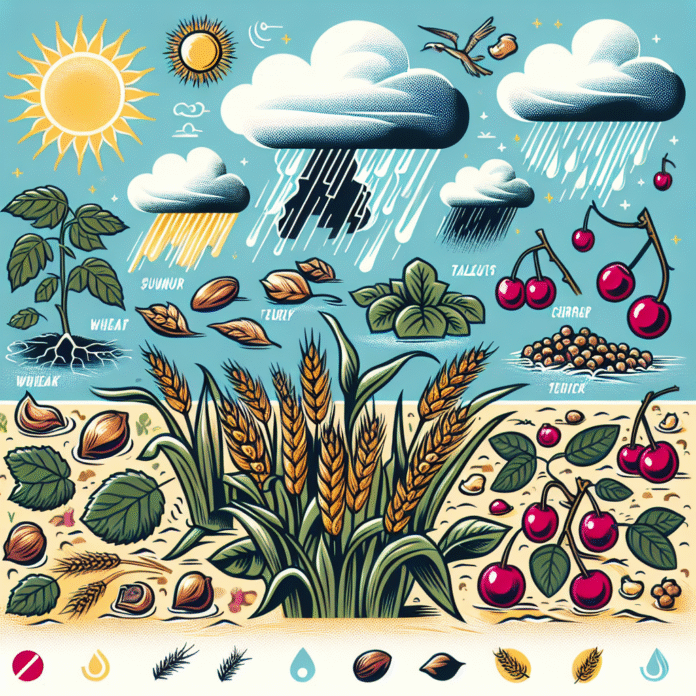Effects of Climate Change on Agriculture in Türkiye
How Climate Change is Impacting Türkiye’s Agriculture
Climate change is increasingly becoming a pressing issue for countries around the world, and Türkiye is no exception. As a nation with a diverse agricultural sector, Türkiye is experiencing significant effects due to shifting climate patterns, which are influencing crop yields, water availability, and overall food security.
Altered Weather Patterns
One of the most immediate impacts of climate change in Türkiye is the alteration of weather patterns. Fluctuations in temperature and precipitation are leading to unpredictable growing seasons, which can affect the timing of planting and harvesting. For instance, some regions are experiencing warmer winters and hotter summers, which can result in reduced crop yields for temperature-sensitive crops such as wheat and barley.
Water Scarcity
Water availability is another critical concern for Turkish agriculture. Türkiye relies heavily on its river systems and groundwater for irrigation. However, rising temperatures and prolonged droughts are straining these resources. As a result, farmers may face challenges in sustaining crop production, leading to increased competition for water resources among agricultural, industrial, and urban users. This scarcity may force farmers to adapt by switching to more drought-resistant crops, which could alter traditional farming practices.
Soil Degradation
Climate change is also contributing to soil degradation in Türkiye. Increased rainfall intensity can lead to soil erosion, while higher temperatures can reduce soil fertility. This degradation not only affects crop productivity but also threatens the long-term sustainability of the agricultural sector. Farmers may need to invest in soil conservation techniques and organic farming practices to maintain soil health and productivity.
Impact on Livestock
The livestock sector in Türkiye is similarly vulnerable to the effects of climate change. Heat stress can affect animal health and productivity, leading to lower milk production and increased mortality rates. Additionally, changing forage availability due to climate shifts may require farmers to adapt their grazing practices and feed management strategies.
Economic Consequences
The economic implications of climate change on agriculture in Türkiye are profound. Reduced crop yields can lead to increased food prices, affecting both farmers and consumers. Additionally, rural communities that depend on agriculture for their livelihoods may face economic instability, prompting migration to urban areas in search of work. This shift can further strain urban infrastructure and services.
Adaptation Strategies
In response to these challenges, Türkiye is beginning to implement various adaptation strategies in its agricultural sector. These include investing in climate-resilient crop varieties, enhancing irrigation efficiency, and promoting sustainable farming practices. Government initiatives and support programs are crucial for helping farmers adapt to these changes and ensuring food security for the nation.
Conclusion
Overall, the impacts of climate change on Türkiye’s agriculture are multifaceted and require urgent attention. By adopting innovative solutions and sustainable practices, Türkiye can work towards mitigating the effects of climate change and securing its agricultural future. The collaboration of government, farmers, and researchers is essential in developing effective strategies that not only protect the environment but also support the livelihoods of those dependent on agriculture.


